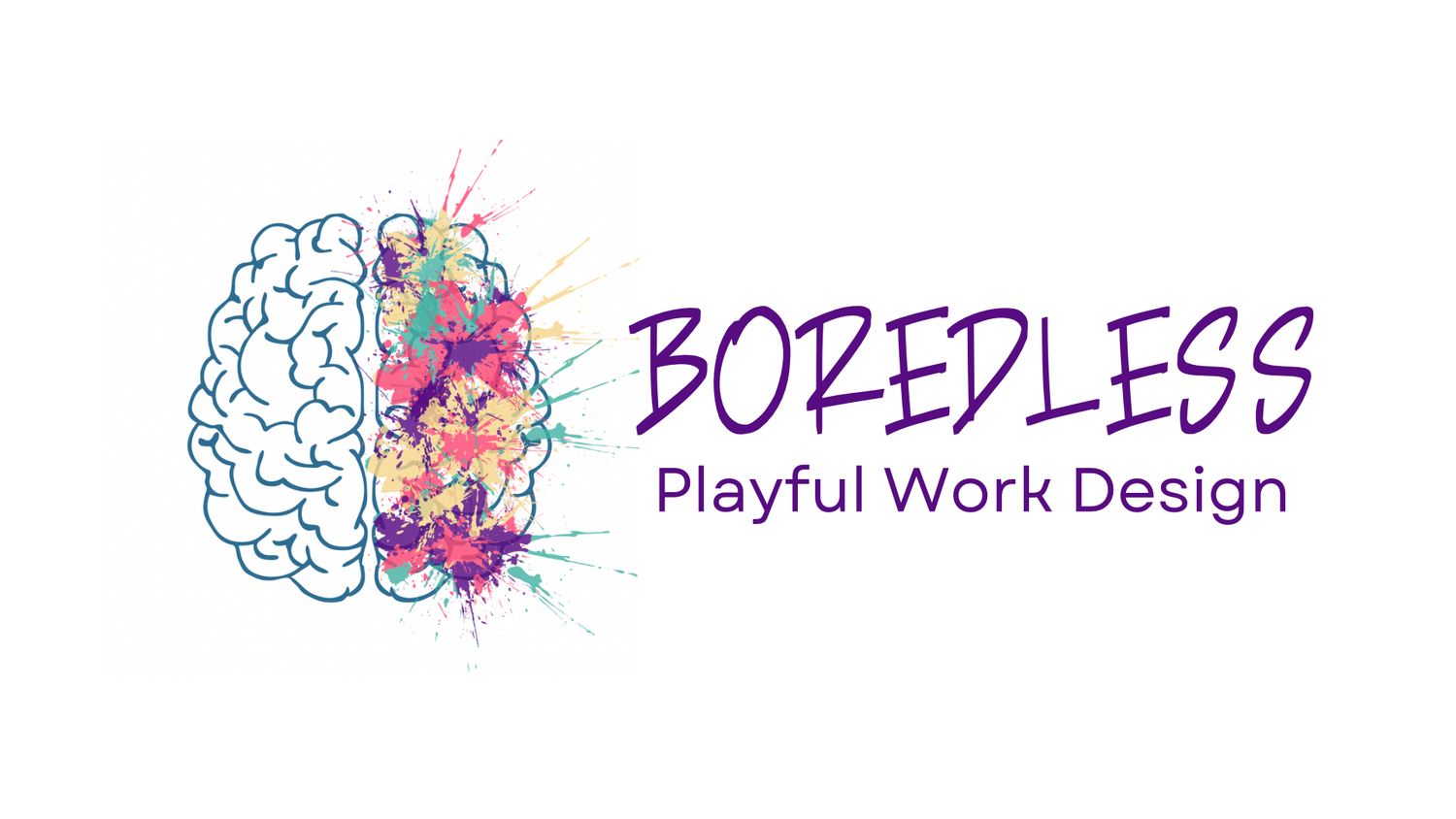Foster Belonging through play
Play and playfulness has been proven by neuroscientific research to improve a number of essential (soft) and technical (hard) skills in the workplace for both individuals and teams. Improvements can be expected in employee engagement, retention, productivity, profitability, creativity, and so much more. Play and playful work design are also excellent ways to foster belonging within an organization’s culture.
Belonging (as defined by Great Place to Work) is “an employee’s sense that their uniqueness is accepted and even treasured by their organization and colleagues.” Adding this “B”elonging to Diversity, Equity, and Inclusion “DEI” truly enhances the efforts of those championing efforts to create psychologically safe workspaces. The Belonging aspect ensures individuals that are unique and maybe divergent feel acknowledged and appreciated as a person and for the work they do.
An organization could have a very diverse staff but if the singularity of those individuals is not understood, valued, recognized, and respected, it’s pointless. Therefore, creating a workplace that makes them feel like they belong is crucial.
BoredLess always focuses on the neuroscience of how play and playfulness impact us so let’s look at the neuroscience of belonging.
Oxytocin, a neurochemical released in the posterior pituitary gland during labor, sexual encounters, or simple touch is sometimes called the love hormone. Aside from romantic or sexual relationships, it’s what fosters a feeling of belonging, intimacy, and sometimes trust between individuals. Some also call it the trust hormone. We can release oxytocin when listening to music with others, participating in movement such as exercise, or singing in a group. In professional settings, research shows that oxytocin can be released when trust is exhibited to you, even by a stranger. Research shows that a benefit of oxytocin is an increase in cooperation and productivity among teams of all types, as well as a drive to work ‘harder’ to help a group.
Oxytocin however can have some negative effects. Too much oxytocin can cause poor resilience, reduced ability to cope with failure, and even over-cooperation (going along with what the group says just because it’s that group). A reduction of critical thinking and increase in anxiety of failure is definitely not going to foster a sense of safety and belonging in an organization.
Since we cannot rely on social interactions alone to provide us with the appropriate levels of oxytocin and beneficial combinations of other neurochemicals, we must consider playful work design as a holistic approach. Playful work design provides opportunities for benefits such as collaboration, overall mental and physical well-being, and more in addition to a strong sense of belonging!
We need to be certain that all levels of the hierarchy are learning how to create a psychologically safe workspace. It’s been said that the culture of an organization is defined by the worst behavior that’s tolerated by leadership. Even if leadership is empathetic, caring, and open, belonging can be ruined by a toxic co-worker. Playful work design across an organization guarantees the behaviors that contribute to belonging are ubiquitous across the workplace.
If you’re ready to see the transformation playful work design can bring to your organization, let’s talk! Schedule a discovery call here!







